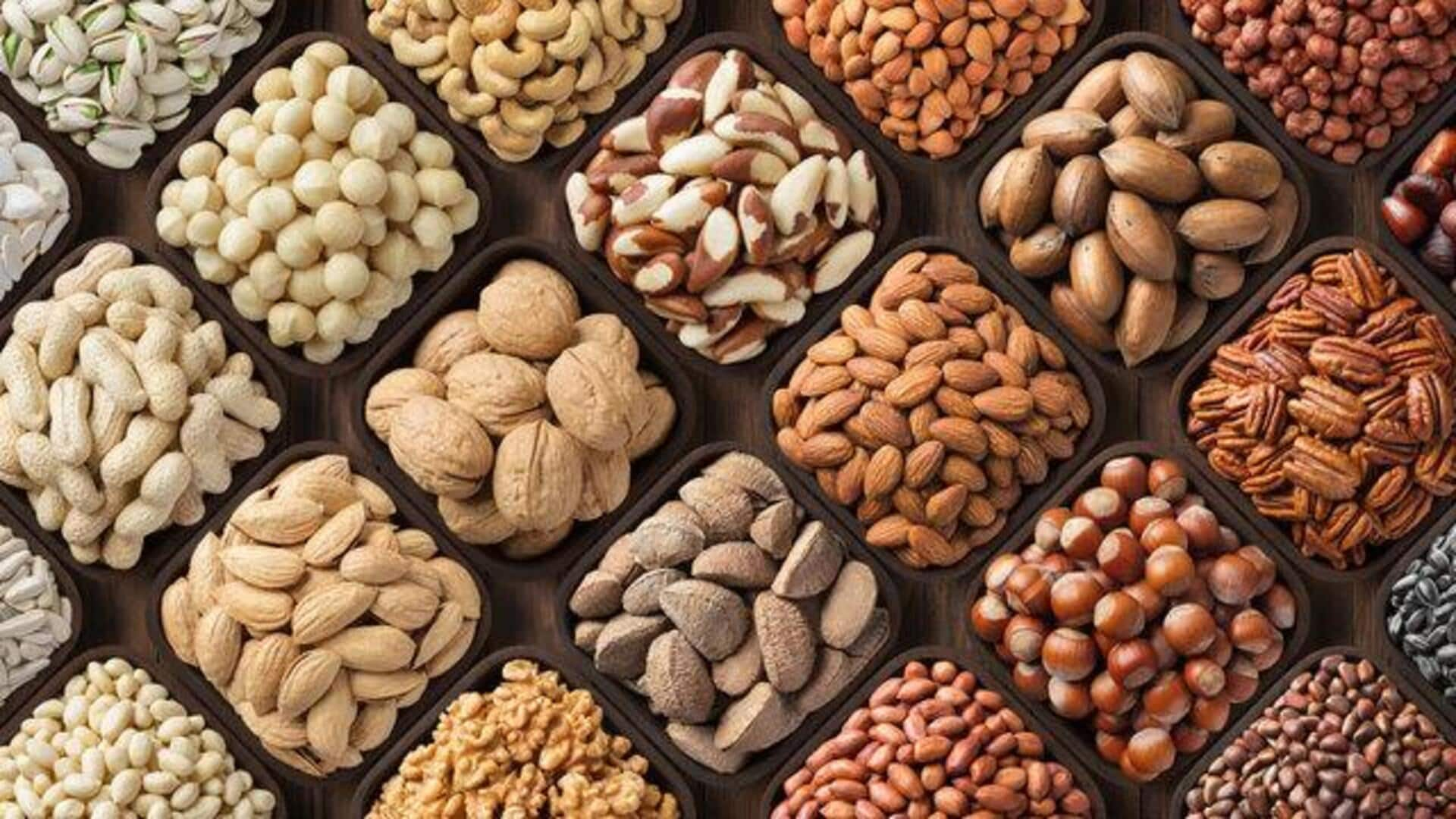
Snack smart: Healthy options to improve energy
What's the story
Long meetings can be mentally draining, making it difficult to stay focused and productive. Eating the right snacks can keep your energy levels up and make it easier for you to concentrate. Picking healthy snacks that release energy slowly can make a world of difference in how you feel during these long sessions. Here are some snack ideas that are nutritious and keep your mind sharp and alert.
Drive 1
Nuts and seeds for sustained energy
Nuts and seeds are amazing sources of healthy fats, protein, and fiber. They keep you energised throughout the long meetings. Particularly, almonds, walnuts, sunflower seeds, and chia seeds are highly beneficial. They have a high dosage of omega-3 fatty acids. These nutrients keep your brain healthy by improving cognitive function. A small handful of mixed nuts or a seed mix can be a handy snack option. It's easy to carry around.
Drive 2
Fresh fruits for natural sugars
Fresh fruits like apples, bananas, berries, and oranges give you natural sugars that provide an immediate energy boost without the crash of processed sugars. They also pack essential vitamins like vitamin C and antioxidants that promote overall brain health. Keeping a bowl of fresh fruit handy in meetings can ensure you have access to quick nourishment whenever needed.
Drive 3
Whole grain crackers with hummus
Whole grain crackers and hummus make for a fulfilling snack loaded with complex carbs and protein. The fiber of whole grains keeps blood sugar stable, while hummus gives you the plant-based protein you need for optimal mental performance. This combination is not just filling, but also promotes better focus by keeping hunger at bay.
Drive 4
Yogurt with berries or granola
Yogurt with berries or granola gives probiotics and vitamins from fruits or grains—perfect combination to aid gut health and brain function through better digestion cycles. This paves way for improved absorption levels of nutrients into bloodstream systems over timeframes lasting hours per day. This varies based on personal dietary habits adopted regularly.